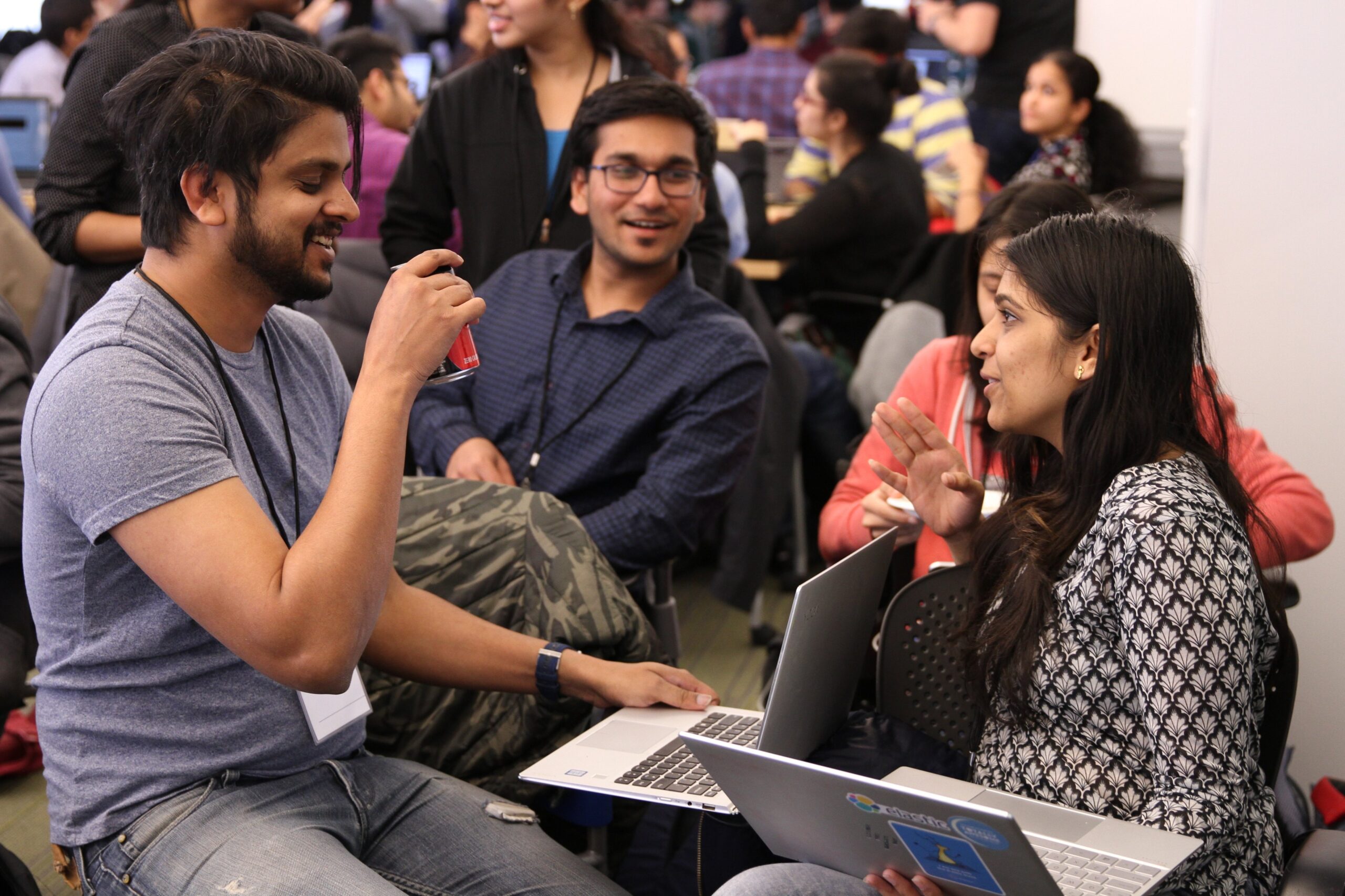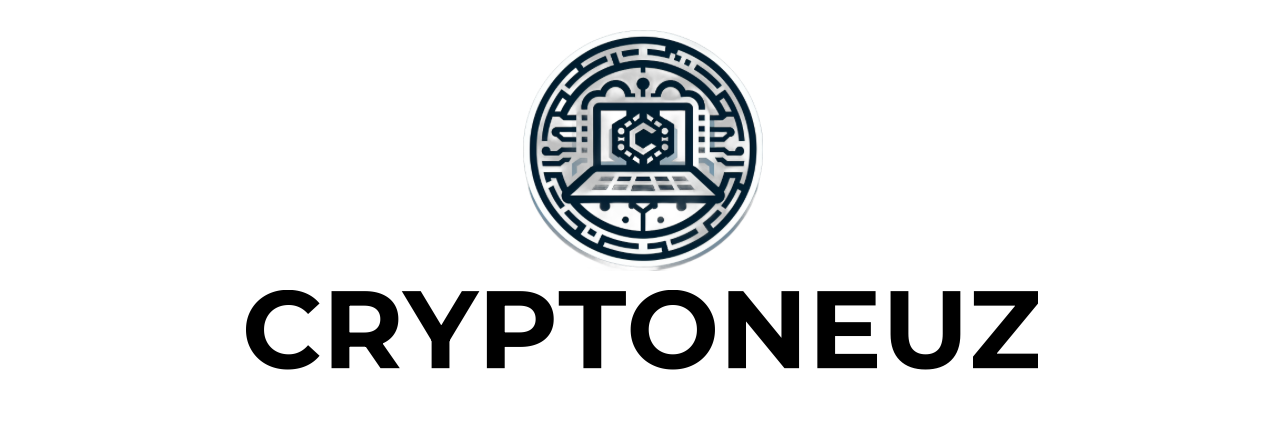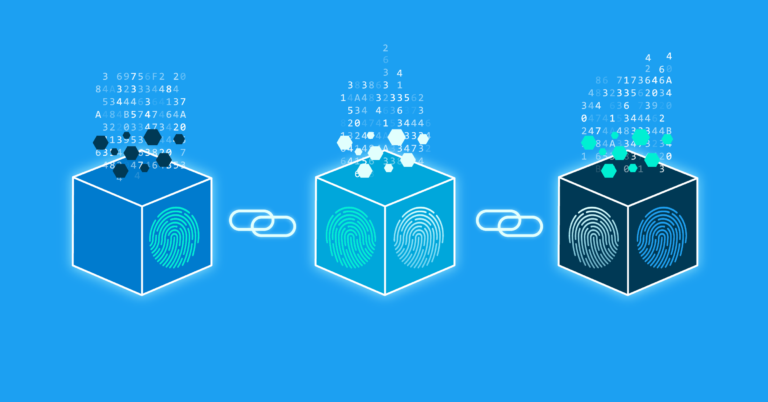What is a Hackathon in Blockchain? Benefits and How to Create a Hackathon
When it comes to crypto and blockchain, a hackathon is a race to make a sample app that runs on top of a blockchain ecosystem. Participants can learn about all the different parts of making apps with new technologies, from coming up with an idea to putting it into action.
The words “hacks” and “hackers” are often used in a bad way, especially in the crypto world. But “hackathons” are good for the tech community, even if you don’t believe it. A lot of the biggest companies in the world use hackathons all the time to spark new ideas, solve problems, and find new employees.
You should know what a hackathon is even if you’re not going to major in computer science. A lot of businesses that aren’t software are also starting to use hackathons. Hackathons are great for building teams and meeting new people, and you and your rivals can benefit from them.
What is a Hackathon?
Hackathons are competitions that last several days and force teams or people to solve a certain problem. Because of their name, “hackathons” are often linked to making software, learning programming languages, and computer science. OpenBSD, an operating system that focuses on security, held the first hackathon that we know of in 1999. A lot of big tech companies, like Meta at Facebook, are known to use hackathons as part of their business plan.
Hackathons are usually thought of as events for coders and computer programmers, but the structure has spread to many other fields. Hasbro, Capital One, and TD Ameritrade are just a few of the companies that have held hackathons in the past.
Hackathons typically last a few days and can occur in person or online. Some hackathons are open to students or workers working alone, while others are open to teams. A lot of hackathon managers let people from outside the sponsor or sponsors’ companies join, but some may choose to hold “internal hackathons” where employees work together to find a solution.
Hackathons don’t always result in a big hit, but some have given rise to new businesses and apps for phones. Hackathons also aid in introducing event managers and sponsors to talented students, business owners, and employees.

How do Hackathons Work?
A hackathon can be set up in a lot of different ways, but most of them follow the same basic structure. It starts with a manager telling hackathon participants about the problem at the start of the event. The host then tells everyone about the blockchain hackathon’s rules and how the winners will be chosen.
Once the competitors or participants know what problem they need to solve, they usually split up into groups and get to work on their answers. They only have a short time to come up with a good answer. Most of the time, hackathons end after three days.
A group of judges looks over each team’s hacking project when the time is up. Finally, the judges will look over each answer and pick the winner. Most of the time, hackathon winners get cash prizes.
How does a Blockchain Hackathon Work?
A blockchain hackathon is a chance for people or groups to work together to create new and interesting blockchain-based solutions. It usually lasts for a set amount of time, like a few days or a weekend, and people work on making working prototypes, which are proofs that blockchain technology can be used to make applications that work. Judges who have already been chosen usually choose the winner based on the demo or proof of concept that is shown.
There are so many possible blockchain hackathon themes that it might seem hard to put one together. In fact, blockchain hackathons are fun events that people like to take part in, especially when they can win prizes.
Categories of Hackathon
Hackathons can be broken down into three main groups when they’re in their natural environment, where programming causes innovation:
1. Competitive Hackathons
Picture dozens, sometimes hundreds, or even thousands, of programmers hunched over computers, coding nonstop. They can work alone or with others to solve a problem or make a product. In the next 24 to 48 hours, there is a chance to win prize money, highly sought-after jobs and internships, or just the right to brag.
2. Sponsored Hackathons
Both universities and charities hold hackathons to find the best new employees, solve problems (big and small), grow their businesses, or just get people who like to code together.
3. Internal Hackathons
More and more companies are having their teams participate in blockchain hackathons. Like the name suggests, these hackathons are often meant to shake things up, make goods better quickly, and speed up the process of coming up with creative solutions to problems.
All of the different kinds of hackathons can learn from each other. At a college hackathon, one team of cybersecurity students might hack their opponents’ server for pride and glory and the chance to get a prestigious summer internship. This is the 21st century version of take the flag.
Companies that got their Start at Hackathons
A lot of new businesses got their start at hackathons. Some well-known businesses got their start as hackathon pitches:
1. EasyTaxi
EasyTaxi is a global service that lets you watch taxis. It was first created at Startup Weekend Rio in 2011. After winning first place at this event, EasyTaxi went live in Brazil a year later. The business is now present in 30 countries and over 300 towns.
2. Zapier:
While Zapier’s team had talked about combining several apps and APIs into a workflow app before, they didn’t really work on this idea until Columbia, Missouri’s Startup Weekend in 2011. This app was a big hit when it came out the next year, after the Zapier team won first place for their plan. Today, Zapier can connect thousands of apps, and it’s worth many billions of dollars.
3. Carousell:
Carousell, an app for selling things online, was first the winner project at Startup Weekend Singapore 2012. Because people liked the Carousell team’s hackathon project, they chose to release their app a few months later. Carousell is still a popular shopping app in many places, like Hong Kong, Taiwan, and Malaysia.
4. CropSafe:
The idea for the farm tracking app CropSafe, which is based in Dublin, came up at the Code4Good Space Hackathon in Belfast, Northern Ireland. The team put their plan to use satellite images to get crop data to work after winning first place at this event. The CropSafe app can now be downloaded on both iOS and Android devices.
Also Read: Leader of Venezuela’s Opposition Proposes Bitcoin as the National Reserve Asset

Benefits of Blockchain Hackathons
Hackathons are more than just a race to win the big prize. Really, lots of people who go to hackathons say their best memories happen when they’re not competing. If you’re not sure if you’d win your first hackathon, you can still learn a lot from it. What you can look forward to is this:
1. Hackathons Inspire Teamwork
Anyone know of a better way to test skill in this area? Please let us know. After all, a lot of hackathons are really just live experiments in joint learning and teamwork, which are skills that are becoming more and more in demand. The idea of the lone mind is turned on its head by them.
Because of this, it’s not a surprise that 30.3% of all hackathons happen on college grounds. Students have the chance to learn while doing something that professionals do.
2. Hackathons Promote Diversity and Enhance Positive Change .
Hackathons change more than just what coders do. They also change who works in tech.
Hackathon culture is showing more and more values of diversity and inclusion; more and more events are focused on different types of people. Women and people of color are making progress in the tech business by taking part in hackathons by and for them on a national and global scale.
The effects of these events are strong, and the world will be a much better and fairer place because of them.
3. Networking:
This is good for both the managers and the people who are taking part. Blockchain hackathons are often used by organizers and donors to find new employees. Competitors also have the chance to meet a lot of professionals who can help them with their careers.
Possible creative breakthroughs: A hackathon’s short time limit is meant to force you to think quickly. If you’ve been having trouble coming up with ideas and solutions, a hackathon might help you get past your “writer’s block.”
4. Chance to Improve your Resume:
One great thing about blockchain hackathons is that they let you make projects and come up with new ideas. Depending on how the hackathon was set up, you might be able to use these ideas in other challenges.
How to Organize a Hackathon
If you want to run a hackathon and want to know how to make it work, there are many things you need to think about. Setting up a blockchain hackathon can be easy if you follow these steps:
- Pick your topic very carefully: The problem your group wants to solve is what every hackathon is all about. Make sure that the problem your hackathon is based on will help your business. Do a lot of study on your own to find out why your problem is so important and how much more you can make if you solve it.
- Set your structure and theme: Most hackathons have a clear theme, so give yourself plenty of time to think about what you want to show off during the competition. Make sure that the style of every part of your hackathon fits with the main theme. Also, think about how to make it happen if you want to host an event in person or online.
- Set a reasonable due date and guidelines for judging: Think about the job you want people to complete and how long it should take to make a prototype that works. Also, make sure that your standards for judging are based on what you want most. For example, some managers might value new ideas more than efficiency, while others might be most interested in lowering costs. Before the hackathon starts, make sure everyone knows how you’ll rate each version.
- Hackathons aren’t just about the main organizer; speak with important sponsors: Dozens of businesses and start-ups get together at many of these events to work together and meet new people. Make a small list of possible event sponsors, and try to get as many of them as possible to show up. To get a lot of people to come to your hackathon, post about it on social media, send out business memos, and put up flyers at universities.
How to Prepare for a Hackathon: Participant’s Guide
Hackathon organizers don’t want people who are going to be there to know too much about the problem they have to solve before they get there. But before the hackathon starts, most teams that do well have a general idea of what they need to work on. Before going to your hackathon, here are some things you should keep in mind:
- Conduct thorough research on the organizer: The mission statement and goods and services of your organizer should be clear to you. Find out if the person in charge of your hackathon has run any others before. Pay close attention to the projects that the judges like. Because of this, you can better make your team’s plan for the game.
- Get used to making quick templates: During a hackathon, time is limited, so you need to know how to make themes that look good on the spot. Make sure you know how to quickly use the presentation tools you like. Before your hackathon, make sure you know how to use all the apps you’ll be using by making some test templates at home.
- Give your team clear jobs to do: Even though hackathons are group projects, the best teams are organized and have a clear chain of command. During a hackathon, you should take the time to learn about the skills of each team member and how to best use them. Make sure you have a few team meetings to talk about what each person is responsible for and how the plan is going to work.

Conclusion
Hackathons are a great way to get people to work together and come up with new ideas. These events are also great ways for sponsors, organizers, and participants to meet new people. Even though not every hackathon ends in a multibillion-dollar business, they are often rated as one of the best ways to improve your career.



